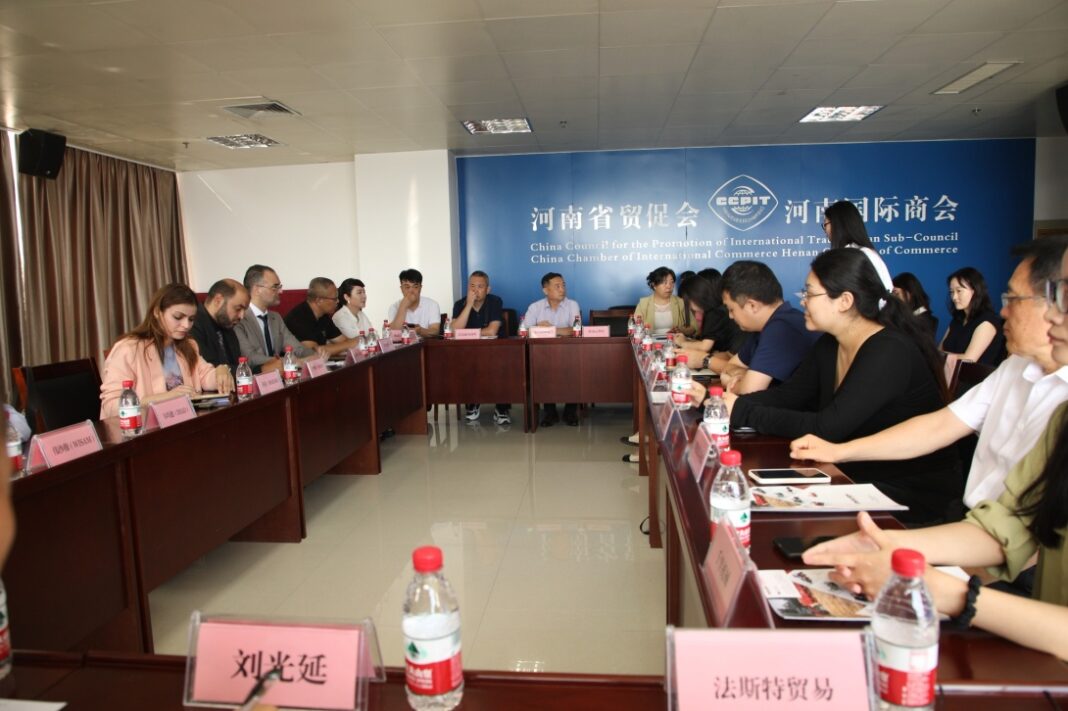The Ministry of Economy and Trade of the Government of National Unity discussed, on Monday, with representatives of 18 Chinese companies enhancing economic, investment and technological cooperation, in addition to reviewing the advantages and incentives granted to investors.
This came during a meeting of the Advisor to the Minister of Economy and Trade, Shather Al-Sayed, with the Chairman of the Board of Directors of the International Chamber of Commerce and the China Council for the Promotion of International Trade of Henan Province, and members of its Board of Directors, in the presence of the Chairman of the Board of Directors of the Libyan-Chinese Joint Chamber, Nayeem Abu Abdullah, and the Director of the Department of Foreign Trade and International Cooperation at the Ministry, Essam Al-Malhouf.
More than 18 Chinese joint-stock and holding companies from the largest companies listed in the Henan International Chamber of Commerce and the Council participated in the meeting, and they have various activities working in various fields inside and outside China.
The companies participating in the meeting work in the manufacture of heat-resistant building materials such as glass, bricks, in addition to the Zhenjin Holding Company, companies building silos for grain storage, oil processing, transportation systems, companies manufacturing smart equipment, communications, various agricultural machinery, international commercial supply chains, energy efficiency technology, food industries and textile.
The meeting touched on the investment opportunities available in Libya, especially those related to foreign participation, encouraging the private sector in both countries, by establishing partnerships to localize industries, knowledge and modern technology, creating jobs for young people, and achieving transit trade, especially after raising the level of relations between Libya and China to strategic partnership.
Shather Al-Sayed stressed the ministry’s keenness to provide the necessary facilities for Chinese companies, and provide an appropriate work environment to enhance economic and trade cooperation, in addition to implementing investment projects and entering the Libyan market in cooperation with the local private sector.
She also referred to the ministry’s plan to target African markets with the aim of activating transit trade, noting the importance of Libya’s geographical location, which makes it a major gateway to Africa and Europe at the lowest costs.













